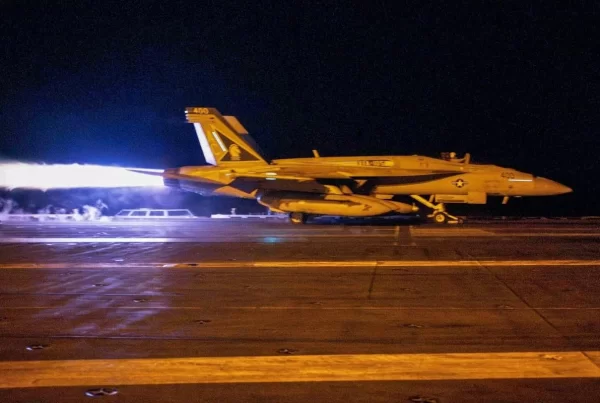Military camp strike is one of bloodiest incidents in civil war, putting peace process in doubt
The death toll from a suspected Houthi rebel missile attack on Yemeni government forces has risen to at least 116, making it one of the bloodiest incidents in the country’s civil war, and threatening to derail the country’s fragile peace process.
Ballistic missiles hit a mosque on Saturday at al-Estiqbal military camp in the central province of Ma’rib, where soldiers had gathered for evening prayers. Pictures and video from the scene showed a huge impact crater in the spot where the mosque had stood.
A spokesperson for the Yemeni armed forces, Abdu Abdullah Magli, said on Monday that the death toll was likely to rise again because of the serious nature of the injuries caused. While the government blamed the Houthi movement, which seized the capital, Sana’a, six years ago, none of the many groups fighting in Yemen has yet claimed responsibility for the attack.
Yemen’s civil war escalated in 2015 when President Abd Rabbu Mansour Hadi fled to neighbouring Saudi Arabia and a Saudi-led coalition of 20 Arab nations intervened to try to defeat the Iran-backed Houthis.
Since then the conflict has morphed into the worst humanitarian crisis in the world, killing an estimated 100,000 people and leaving 80% of the population – about 24 million people – dependent on aid to survive. Both sides have been accused of indiscriminate attacks on civilian targets.
The attack on Saturday was followed by fierce fighting on Monday between government forces and the Houthis for control of a junction east of Ma’rib on the road connecting the province to Sana’a, as well as reports of Saudi-led airstrikes on both Sana’a and the rebel-held Saada province. The senior Houthi commander Jaber Al Muwaed was killed on Monday, according to Saudi television channel al-Arabiya.
The escalation comes after the UN special representative for Yemen, Martin Griffiths, last week celebrated a fall in violence across the country despite the heightened tensions between the US and Iran after the killing of the Iranian general, Qassem Suleimani, on 3 January.
On the same day that a drone strike killed Suleimani in Baghdad, the US tried, but failed, to kill Abdul Reza Shahlai, a senior Iranian commander who was in Yemen.
Suleimani’s death prompted demonstrations against the US in Sana’a and promises of revenge from the Houthi leadership.
“I have said before that the hard-earned progress that Yemen has made on de-escalation is very fragile. Such actions can derail this progress,” Griffiths said in a statement. “I urge all parties to stop the escalation now and to direct their energy away from the military front and into politics.”
Measures agreed at peace talks in December 2018 to stop the country falling into widespread famine have translated into grindingly slow progress on the ground.
In recent months, however, the first back-channel negotiations between Riyadh and the Houthis have been facilitated by neighbouring Oman after the rebels claimed attacks on tankers in the strait of Hormuz and on Saudi oil infrastructure that threatened global oil supplies. The US blamed most of the attacks on Iran, which denied involvement.
Hadi said the attack “confirms without [a] doubt that the Houthis have no desire for peace”, calling the group “a cheap Iranian tool in the region”.
The Yemeni information minister, Moammar al-Eryani, had said the Ma’rib attack was Houthi revenge for Suleimani’s death, but the analyst Farea al-Muslimi said the incident, which targeted Yemeni soldiers, should not be viewed as such.
“The new attack is horrific but since it was not on the Saudis directly or in a border area, those lines of communication [between the Houthis and Riyadh] should not be threatened,” said Muslimi, a non-resident fellow at London’s Chatham House thinktank.






